Names define us. They represent us and primarily tell the world who we are, what we stand for, and what we are about.
In Africa, our names carry a lot of meaning. It should be noted that most of these nicknames have immense attachment to the tourism aspect of the countries – from wild animals to national symbols to iconic geographical locations. The variety speaks to the never-ending attachment that cuts across.
As we approach the CAF Africa Cup of Nations in Ivory Coast, it is imperative that we take a close look at the nicknames of all the 24 teams that will be taking part in this year’s edition.
Group A
Cote d’Ivoire – The Elephants
The host nation derives its name from the elephant. The ivory tusks on the largest mammal give it a graceful yet conquering demeanor that sets it apart. Their national football team has since embraced this name – the Elephants with so much pride and carried the spirit of the elephant to every tournament.
Nigeria – The Super Eagles
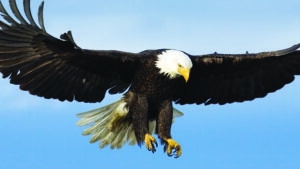
The characteristics of eagles range from courage to bravery, then pride and grace. What all these have in common is a never-give-up sense of worthiness and a posture that is always looking to stand out. This description can, in more ways than one, define any name you think about first when one talks about Nigerian football.
Equatorial Guinea– Nzalang Nacional
Thunder comes with force. It announces itself as the power that is in charge of that moment when it appears. For Equatorial Guinea, the nickname National Thunder is meant to scare the opponents and anyone who wants to doubt them whatsoever.
Guinea Bissau – Djurtus
Djurtus means an African wild dog in the Portuguese-influenced Creole spoken by the majority of citizens. Considered to be the largest wild canine on the continent, Guinea Bissau is very clear on the message that they want sent out there to their opponents.
Group B
Egypt – The Pharaohs
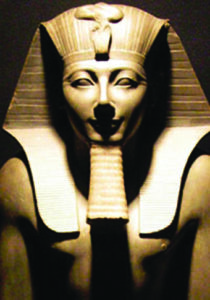
You will have to deep dive into ancient Egyptian history to immerse yourself in this folklore about the Pharaohs who, as leaders, were mediators between the gods and Egyptians. In celebration of this rich history, Egypt, as the Pharaohs, represents royalty and excellence in true reflection of the original meaning of the word
Ghana – The Black Stars
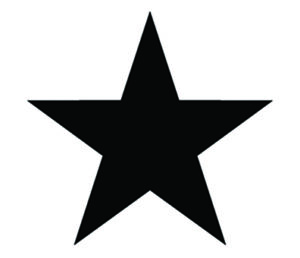
The Black Stars of Ghana are named after Marcus Garvey’s Black Star Line shipping line that spearheaded the Back-to-Africa Movement in the 20th century to advocate for the return of the descendants of African American slaves to Africa. The Black Star, which sits in the middle of the Ghanaian flag, represents freedom, African pride, Black sufficiency and the Pan African Movement.
Cape Verde – Blue Sharks
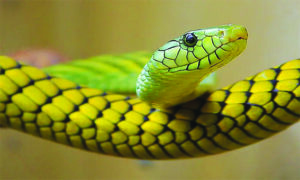
When Cape Verde made their CAF Afcon debut back in 2013, many thought that they were joyriders and small fish in the pond. Little did they know that former air traffic controller cum coach Lucio Antunes had a well-mapped out plan to display to the world what sharks can do – Blue Sharks!
Mozambique – Mambas
Os Mambas, as they are frequently called back home, the Mozambique team is named after the highly venomous and fast-moving snakes. The depiction is one that is intended to scare their opponents to know that they are in dangerous territory when around them.
Group C
Senegal – Teranga Lions
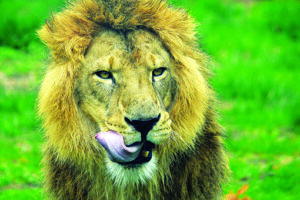
Known for her vast plains, Senegal has an abundant stretch of woodland savannah and large pacts of land with wooded wetlands that provide the perfect environment for lions. The Lions of Teranga tag then encompasses the kings of the jungle in this precious land of Teranga.
Cameroon – Indomitable Lions
The ones who cannot be tamed are called indomitable. With an impressive five CAF Afcon trophies in their cabinet, it is very easy to understand and see why Cameroon is called the Indomitable Lions. It is impossible to defeat or subdue them. They will be in your face and everywhere around you just to prove that they can.
Guinea – Syli National
Translated to National Elephants from the local Sousou language, the Sylis represent majesty and wisdom. The syli used to be Guinea’s currency between 1971 and 1985.
Group D
Algeria – The Foxes
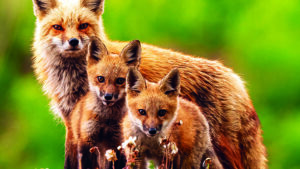
This is the national animal of Algeria. The desert foxes are the smallest foxes in the world and can be found in the Sahara Desert in Algeria.
Very intelligent, shy, and highly intuitive, the desert foxes use these qualities to survive in their environment.
Burkina Faso – The Stallions
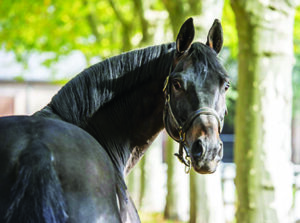
Depicted on the coat of arms of Burkina Faso, the two stallions are a celebration of the legendary Princess Yennenga, considered to be the mother of the Mossi Tribe, who are the largest ethnic population in the country.
Mauritania – Lions of Chinguetti
Chinguetti is a fortified village located in the famous Adrar region in the north of Mauritania. Named as a UNESCO World Heritage Site for having the second oldest minaret in consistent use in the Muslim world, Chinguetti is considered a national symbol. To be named after this historic place, the Lions of Chinguetti sought to depict this history filled with pride and loyalty.
Angola – Palancas Negras
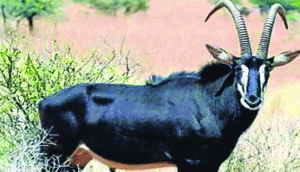
The sable antelope is the national icon of Angola. It can be seen on money notes, stamps, and logos in many a firm and company over the years. The sable antelope symbolises beauty, grace, and keen visual sharpness.
Group E
Tunisia – Carthage Eagles
With a direct attachment to the history of Tunisia, Carthage is known for its archaeological sites in Tunis founded by the Phoenicians in the first millennium BC. At some point, it was the richest city in the Mediterranean Region. Tunisia combines it with the ferocious power of an eagle that sets out to showcase its freedom and majesty.
Mali – Eagles
Home to the great Mansa Musa believed to be the wealthiest man to have ever lived and Timbuktu – Africa’s oldest university, Mali’s history is filled with manuscripts that encompass greatness and excellence.
South Africa – Bafana Bafana
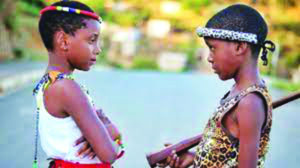
Named by legendary journalist S’busiso Mseleku back in 1992 after re-admission into international football circles, Bafana Bafana is a Zulu term to mean ‘boys boys’. It is a stimulus to further motivate and induce aspiration in the players to go further and beyond.
Namibia – Brave Warriors
In a country with vast deserts, some of the world’s highest sand dunes, the world’s largest population of free-roaming cheetahs, and the world’s largest underwater lake, one can say that this beautifully stunning country possesses enviable traits. To survive here, you need to be a brave warrior.
Credit: cafonline.com









